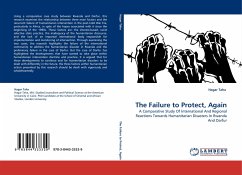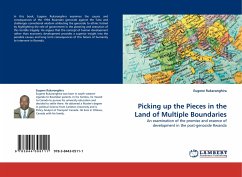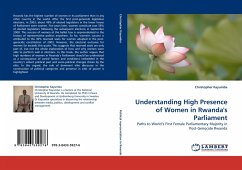Military intervention remains controversial when it happens, as well as when it fails to. Since the end of the Cold War, the phenomenon of military intervention has attracted much scholarly interest, and research demonstrated that several instances of the use of force or the threat to use force without Security Council endorsement were acceptable and necessary. This study aims at explaining the extent to which military intervention in Africa has evolved since the end of the Cold War, in terms of theory, practice and how it unfolded upon the African continent. It focuses on both successful and unsuccessful cases of military intervention in Africa. The unsuccessful cases being Somalia in 1992, Rwanda in 1994 and the Darfur region of Sudan in 2003; and the successful cases being Sierra Leone in 2000 and the Comoros in 2008.
Bitte wählen Sie Ihr Anliegen aus.
Rechnungen
Retourenschein anfordern
Bestellstatus
Storno








